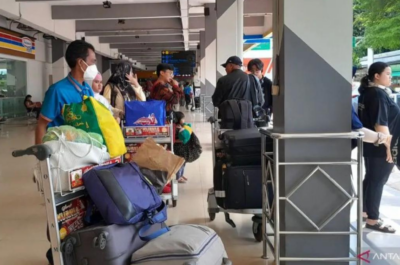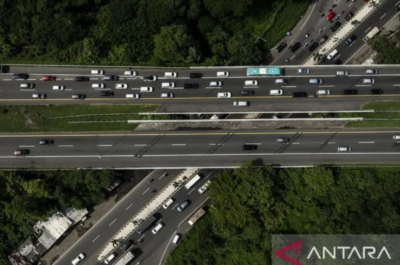Indonesia enforces airfare price ceilings for economic class to ensure affordable travel during the Eid homecoming season, affecting the entire travel sector.
JAKARTA, INDONESIA – In a recent declaration that is poised to significantly impact the travel and hospitality sector, Indonesia‘s Transportation Minister, Budi Karya Sumadi, announced a stringent oversight mechanism on airfares, particularly emphasizing the adherence to the established price ceiling. This move comes as a preparatory step for the anticipated surge in travel activity surrounding the Eid homecoming exodus, a period marked by mass movement across the nation.
Government’s Firm Stance on Price Regulation
The minister’s statement underscores a clear message: airlines failing to comply with the mandated price ceiling will face consequences, ranging from formal warnings to unspecified actions, aligned with the prevailing regulations. This stance was articulated following a critical working meeting focused on the preparations for the Eid exodus, highlighting the government’s proactive approach to ensuring fair travel costs for the populace.
“If there is a violation, we will take action or give a warning in accordance with the applicable rules,” he said
Rationale Behind Price Ceiling Implementation
Sumadi elaborated on the comprehensive evaluation that informed the price ceiling policy, taking into account various business components such as aircraft leasing or purchase costs, aviation fuel, and personnel expenses. Importantly, the price regulation targets economy-class tickets exclusively, leaving the pricing of business-class fares to the discretion of individual airlines. This differentiated approach reflects an attempt to balance operational realities with consumer affordability.
Legislative Support for Affordable Travel
Echoing the ministry’s commitment, Commission V of the House of Representatives (DPR) amplified the call for more affordable airfares, particularly stressing the importance of easing financial burdens during the Eid holiday season. With an estimated 190 million people expected to travel during this period, the commission’s chairperson, Lasarus, voiced a collective aspiration for a complaint-free travel experience, underscored by accessible pricing for the masses.
Anticipating Challenges of the Eid Exodus
The dialogue between transportation authorities and legislative bodies also touched on the broader logistical challenges expected during the Eid period. With nearly 193.6 million individuals anticipated to partake in the homecoming journey, there’s a concerted effort to prevent ticket shortages and price surges across all modes of transportation, including trains, buses, and ferries.
Implications for the Travel and Hospitality Industry
For professionals within the travel and hospitality sector, the Indonesian government’s reinforced policy on airfare price ceilings represents a critical juncture. This regulatory measure not only affects airlines but also has broader implications for tourism dynamics, consumer behavior, and operational planning.
The emphasis on economic accessibility during peak travel times signals an opportunity for industry stakeholders to align with governmental efforts in promoting domestic tourism. Additionally, the potential increase in travel volume necessitates enhanced service readiness, from accommodation to local transportation, ensuring that the sector can capably meet the amplified demand.
George, in his capacity as an intern, diligently oversees the flow of news, assists in the publication of content, and delves into the strategies of social media distribution. He is currently pursuing his studies in Business Administration at the Athens University of Economics and Business.




























![[PR] PR_Ascott and Vimut Hospital_2024](https://www.traveldailynews.asia/wp-content/uploads/2024/04/PR-PR_Ascott-and-Vimut-Hospital_2024-400x265.jpg)






















































